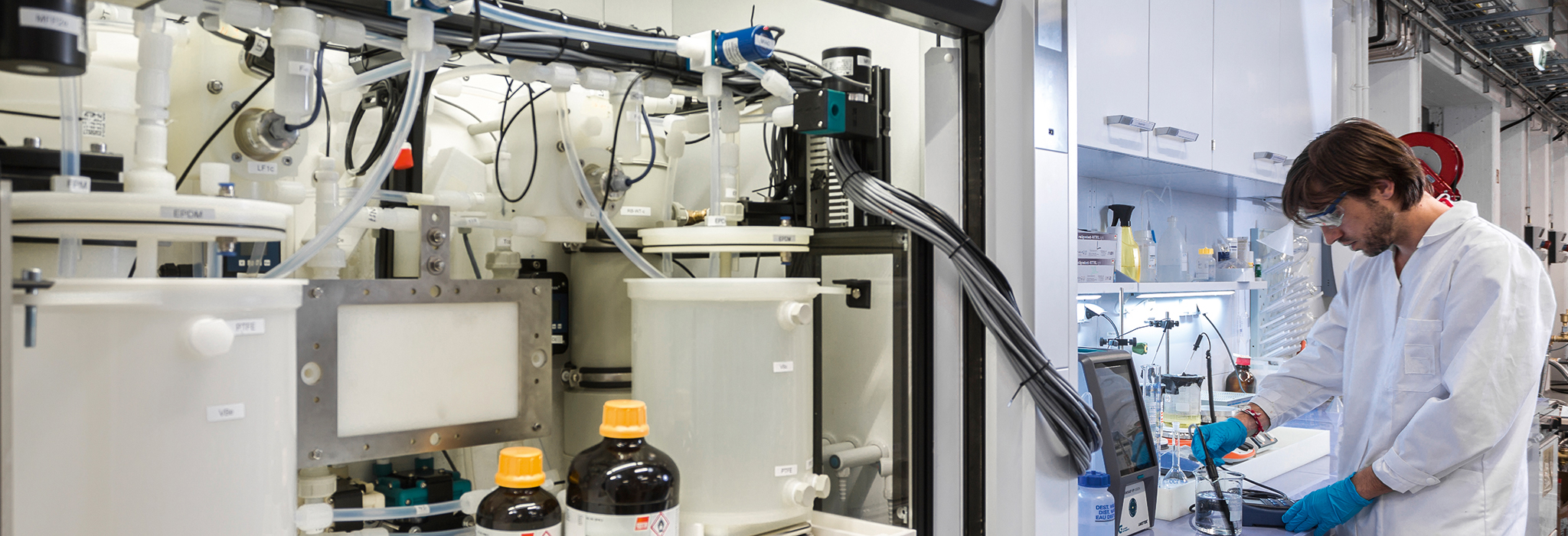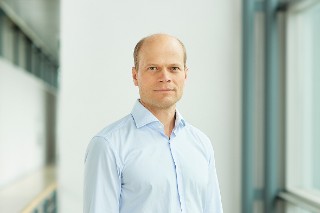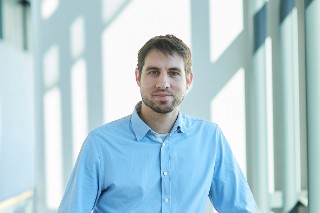Jahr
Year | Titel/Autor:in
Title/Author | Publikationstyp
Publication Type |
|---|
| 2023 |
Sustainable recovery of critical elements from seawater saltworks bitterns by integration of high selective sorbents and reactive precipitation and crystallisation: Developing the probe of concept with on-site produced chemicals and energy
Vallès, Victor; Fernández de Labastida, M.; López, Julio; Battaglia, Giuseppe; Winter, Daniel; Randazzo, Serena; Cipollina, Andrea; Cortina, Jose-Louis |
Zeitschriftenaufsatz
Journal Article
|
| 2023 |
Development of a continuous silica treatment strategy for metal extraction processes in operating geothermal plants
Goldberg, Valentin; Winter, Daniel; Nitschke, Fabian; Held, Sebastian; Groß, Florian; Pfeiffle, Daniel; Uhde, Jörg; Morata, Diego; Koschikowski, Joachim; Kohl, Thomas |
Zeitschriftenaufsatz
Journal Article
|
| 2023 |
Development of the Future Energy System and a Possible Role of Nuclear Fusion
Henning, Hans-Martin |
Vortrag
Presentation
|
| 2022 |
Spraying Fluorinated Silicon Oxide Nanoparticles on CuONPs@CF-PVDF Membrane: A Simple Method to Achieve Superhydrophobic Surfaces and High Flux in Direct Contact Membrane Distillation
Lenac, Zivka; Saldías, César; Terraza, Claudio A.; Leiva, Ángel; Koschikowski, Joachim; Winter, Daniel; Tundidor-Camba, Alain; Martin-Trasanco, Rudy |
Zeitschriftenaufsatz
Journal Article
|
| 2022 |
Recovery of Lithium Carbonate from Dilute Li-rich Brine via Homogenous and Heterogeneous Precipitation
Battaglia, Giuseppe; Berkemeyer, Leon; Cipollina, Andrea; Cortina, José Luis; Labastida, Marc Fernandez de; Rodriguez, Julio Lopez; Winter, Daniel |
Zeitschriftenaufsatz
Journal Article
|
| 2021 |
An integrated approach for the HCl and metals recovery from waste pickling solutions: Pilot plant and design operations
Gueccia, R.; Winter, Daniel; Randazzo, S.; Cipollina, A.; Koschikowski, Joachim; Micale, G.D.M. |
Zeitschriftenaufsatz
Journal Article
|
| 2021 |
Selective silica removal in geothermal fluids: Implications for applications for geothermal power plant operation and mineral extraction
Spitzmüller, L.; Goldberg, V.; Held, S.; Grimmer, J.C.; Winter, Daniel; Genovese, M.; Koschikowski, Joachim; Kohl, T. |
Zeitschriftenaufsatz
Journal Article
|
| 2021 |
The potential of raw material extraction from thermal brines - Successful milestones of the BrineMine project
Goldberg, V.; Winter, Daniel; Nietschke, F.; Rath, M.; Held, S.; Spitzmüller, L.; Budach, I.; Pavez, M.; Morata, D.; Koschikowski, Joachim; Kohl, T. |
Zeitschriftenaufsatz
Journal Article
|
| 2021 |
Optimization of water management plans for CSP plants through simulation of water consumption and cost of treatment based on operational data
Rohani, Shahab; Went, Joachim; Duvenhage, D.F.; Gerards, R.; Wittwer, Christof; Fluri, Thomas |
Zeitschriftenaufsatz
Journal Article
|
| 2019 |
Characterization and Assessment of a Novel Plate and Frame MD Module for Single Pass Wastewater Concentration-FEED Gap Air Gap Membrane Distillation
Schwantes, Rebecca; Seger, Jakob; Bauer, Lorenz; Winter, Daniel; Hogen, Tobias; Koschikowski, Joachim; Geißen, Sven-Uwe |
Zeitschriftenaufsatz
Journal Article
|
| 2019 |
Application of direct contact membrane distillation for saline dairy effluent treatment: Performance and fouling analysis
Abdelkader, S.; Groß, Florian; Winter, Daniel; Went, Joachim; Koschikowski, Joachim; Geißen, Sven-Uwe; Bousselmi, L. |
Zeitschriftenaufsatz
Journal Article
|
| 2019 |
Nexus approach to solar technology for energy and water supply for sustainable rural development in Egypt: A review
Wydra, K.; Jaskolski, M.; Wagner, Lukas; Mohamed, E.S. |
Zeitschriftenaufsatz
Journal Article
|
| 2018 |
Techno-economic comparison of membrane distillation and MVC in a zero liquid discharge application
Schwantes, Rebecca; Chavan, K.; Winter, Daniel; Felsmann, C.; Pfafferott, Jens |
Zeitschriftenaufsatz
Journal Article
|
| 2017 |
Comparative analysis of full-scale membrane distillation contactors - methods and modules
Winter, Daniel; Koschikowski, Joachim; Groß, Florian; Maucher, D.; Düver, David; Jositz, M.; Mann, T.; Hagedorn, A. |
Zeitschriftenaufsatz
Journal Article
|
| 2017 |
Membrane and spacer evaluation with respect for future module design in membrane distillation
Hagedorn, A.; Fieg, G.; Winter, Daniel; Koschikowski, Joachim; Grabowski, A.; Mann, T. |
Zeitschriftenaufsatz
Journal Article
|



